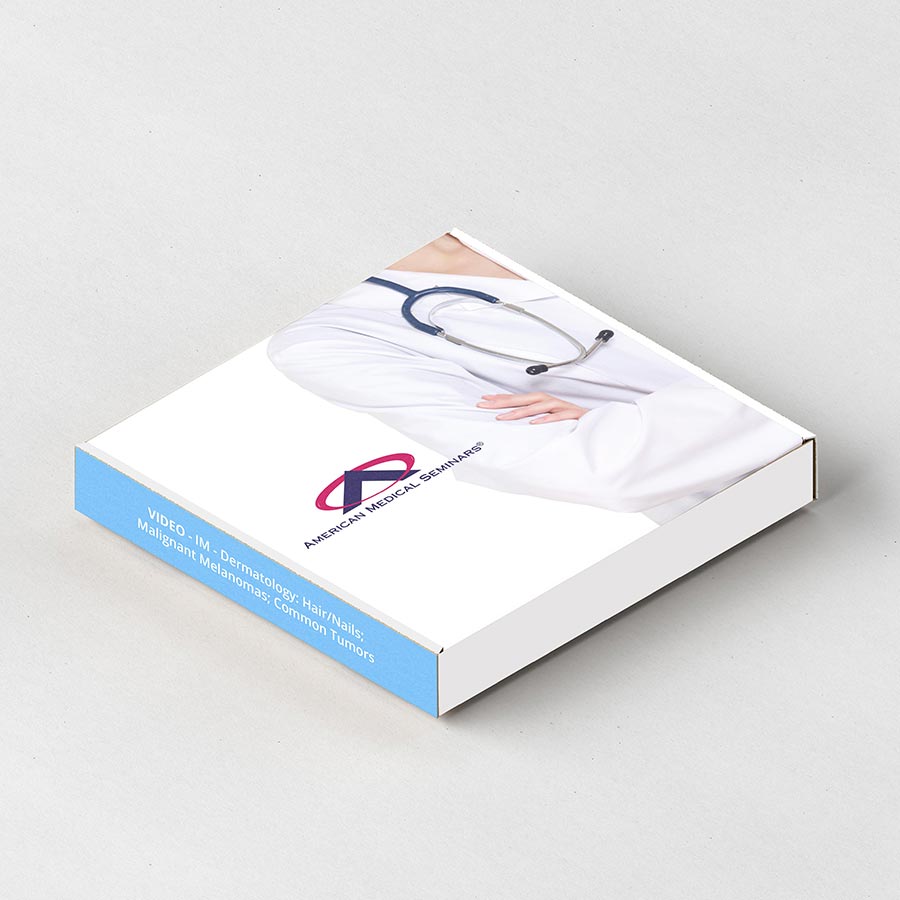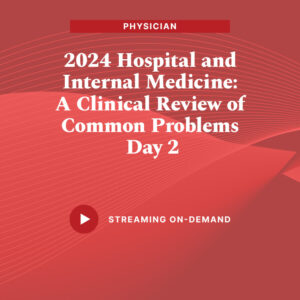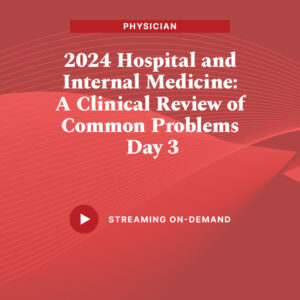Title: Internal Medicine – Cardiology: Heart Failure/Hypertrophic Cardiomyopathy; Valvular Heart Disease; Acute Coronary Syndromes
Faculty: Alyson N. Owen, M.D., Gregary D Marhefka, M.D., F.A.C.C., F.A.C.P., John Bielinski, PA-C
Original Release Date: July 1, 2018 Expiration Date: July 1, 2021
TOPIC 1: Diastolic Heart Failure and Hypertrophic Cardiomyopathy.
Upon completion of this session, the participant should be able to: EBM, COMP
- Describe the prevalence and pathophysiology of diastolic heart failure.
- Identify effective treatment strategies for diastolic heart failure while considering Clinical Trials such as OPTIMIZE-HF, TOPCAT, PARAMOUNT, etc.
- Assess prognosis in patients with hypertrophic cardiomyopathy.
- Apply appropriate treatment strategies in patients with hypertrophic cardiomyopathy.
TOPIC 2: Valvular Heart Disease.
Upon completion of this session, the participant should be able to: GL, EBM, COMP
- Indicate when to order echocardiography for heart murmurs.
- Recognize the appropriate interval of repeat echocardiography imaging.
- Determine the timing of intervention for severe valvular heart disease as per the ACC/AHA Guidelines.
- Integrate the indications, strengths and weaknesses of Transcatheter Aortic Valve Replacement (TAVR) and Transcatheter mitral valve repair.
- Discriminate the current and past indications for endocarditis prophylaxis as per the ACC/AHA Guidelines.
TOPIC 3: Acute Coronary Syndromes in the Elderly.
Upon completion of this session, the participant should be able to: GL, COMP
- Detect pitfalls in the diagnosis of acute coronary syndromes in the elderly.
- Assess global risk of elderly patients.
- Select guideline based management strategies when managing acute coronary syndromes in the elderly.
- Prepare a roadmap to recovery and autonomy after acute coronary syndromes.
- Integrate and employ secondary prevention methods in the elderly.
- The receipt for any incentive-associated purchase will designate the value of the gift card separately from the cost of the learning activity.
- This incentive may have implications on your tax reporting obligations. Any reimbursed amount must be declared as personal income for tax purposes.



